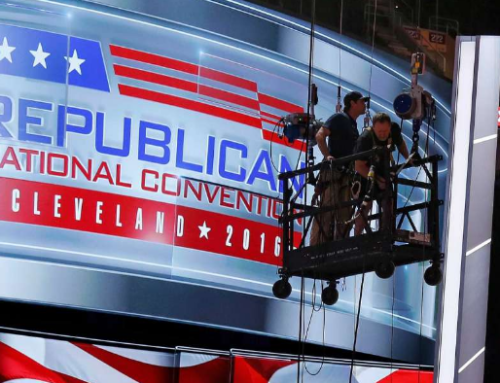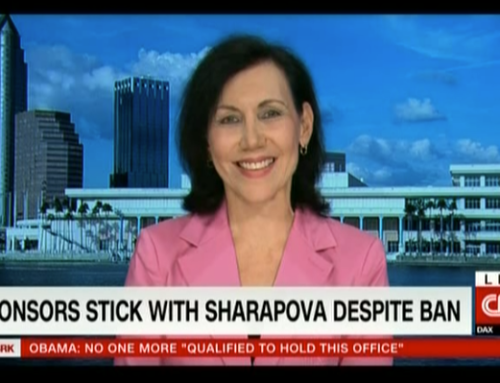This is not the first time this has happened to me, and I know it won’t be the last. However, I am reflecting on this experience and I will apply the lessons learned next time I’m developing new biz.
A couple of weeks ago I got a referral from a business colleague. It was not a good fit for her firm and she thought my consulting team might be an ideal resource. The prospect was an academic consortium pitching a project to receive a large sum of government funding. Their needs were big and complex and they were operating on an extremely tight schedule.
I contacted the prospect immediately after learning of their time-sensitive situation. I gathered the facts, inquired about their budget and was told that “no expense can be spared” and that this project was very important. I recommended that meeting the next day— based on the complexity of the project—and everyday until their funding presentation was critical.
The next day I met with the main contact, a professor and some of his colleagues for over 2 hours. The meeting was informative and seemed successful.
(FIRST MISTAKE) When it was over I was convinced we had the project, based on the tone of the correspondence from his office and the meeting conversation.
It was the Friday before Memorial Day weekend. It was made clear to me that this was an important and time-sensitive project. So I committed to creating a game plan, assembling the necessary team, and submitting fees and a schedule all by Tuesday. I was excited about this opportunity. The nature of the initiative was eco-important and cool. If they were awarded the funding (there was stiff competition) this was something that could not only impact the local community and economy, but society as a whole for generations to come.
Having worked on many projects like this in the past, working with non-marketing folks on a marketing project, especially where decisions were made by a committee, I knew what it would take to successfully pull this off and make a fair profit.
(SECOND MISTAKE) Without any sort of agreement, I dove in. I worked all holiday weekend, at least 20 hours. I reviewed tons of technical papers and prepared and sent some questions to their team. I explained that answers were needed ASAP since their deadline was right around the corner.
It’s now Tuesday, four days after we met. No response from anyone with answers to my questions. It was noon, so I fired off my document, game plan, strategy, creative approach, team, and schedule. There was just over two weeks to complete this project before their big presentation was due in DC. The project entailed project management, production of at least a 50 slide professional PowerPoint, handouts, updated pitch identity and phases that pay, Flash movies, animation, and presentation coaching.
An email came from the prospect stating that he received my proposal and needed to meet with some of his team members and his department heads before a green light could be given.
The next day, he emails me again. “Let’s discuss. We’ve found an animator we like better than yours. Can we talk after 6pm?”
So I call him after 6pm. He again explained, “For a piece of the project that required animation services, we’ve found a resource that we have worked with in the past.” I said, “not a problem. I can just deduct that cost element from our proposal”.
Then a new character emerged. The project contact said, “You do know who you are working with here? We are some of the most renowned academics and we are all elite experts in our field. When we do things, they are big and attract international media”.
He then went on about how this animation firm was on-board because of his superstar team. I replied with full respect concerning their scientific celebrity status. “That is great! My team has also earned those accolades. We’ve worked with top CEO’s, entertainers, and athletes and have been featured in just about every national news outlet and many international ones too”.
Media attention or hanging with industry celebs was not a factor in our interest in the project or how we priced out our work. My team is top-notch and we charged for our services accordingly. He then informed me that our prices were very high and that I was presumptuous in suggesting such an aggressive service package in light of the elite credentials of his team. The conversation moved to, “we would like to still work with your firm, just on a smaller scale.” I replied, “Let me sleep on it and get back with you”.
So that night I retooled the proposal, reduced the fees and resubmitted it. The next day I followed up with the prospect again. He again reminded me of his elite team and that our proposal was still too large and costly. We talked specifically about the bare bones of what we could do and I said I would shoot him our final offer of services. As of today, it is less than 10 days from their deadline. I sent the final offer last Friday and never heard back!
Whether you are selling professional services or a product, there are some significant lessons in this story.
The entrepreneurial fog cost me some bucks:
Yep this one was a “bad me”. I spent over 25 hours of my time ($5,000) not including my team’s time… and we didn’t get the gig. And not that we should get every gig, but I should have seen the disconnect and bailed before loosing the bucks.
I’m an entrepreneur. I go after opportunities with full gusto. Entrepreneurs tend to be optimists. They believe they can do anything. It was a cool project. That was definitely part of my blinding fog.
My motives were integrity-based: do what ever it takes to help this prospect win, provide the best work product, and bring in a reasonable piece of revenue all in a tight time frame.
I missed the red flags
• This prospect did not value what we did. And he was convinced his team was somehow superior to ours. (Never a good sign)
• While he said no expense should be spared, cost was a driver.
• When no sense of urgency was shown from their team over the weekend, knowing the schedule of deliverables was tight, it was a clear signal that we were not on the same page about the complexity of the project.
Five ways to clearly spot a viable prospect from a big fat time waster
1. Before you spend over two hours on the prospect, qualify the assignment.
- Find out who the decision maker(s) are? If you can’t get face time with him/her/them, punt.
- How many other firms are they looking at and who are the firms?
- What is the budget? If they don’t know, ask them if spending X is in line with what they are thinking?
- Confirm the timeline and what they believe their needs are. If you can’t get clear answers, you may definitely want to punt.
2. On opportunities where time is a critical factor and just pulling the proposal together will take a bunch of intense research time and resources, request a fee for this work to at least cover your costs. If they won’t pay for that, they likely don’t truly value what you do.
3. Don’t ignore the red flags. That’s why they are RED. After this experience, I’m starting to journal them as I see them in the project folder.
4. Strip all the glamor from this assignment and make a decision tree on the pros and cons, costs and rewards, of this opportunity.
5. Conduct your own due diligence on the buyer, as they will do on you. The best professional relationships are partnerships, not commodity vendor transactions.
We wish this prospect well. And next time I will do a better job of assessing the opportunity before diving in.
Has this happened to you? Please share your woulda, shoulda, and coulda stories on new business development so we can all waste less time on bad fit prospects.







Dear Karen,
Yes, it is always a dilemma when you face a potentially fat project with big bucks behind it. It is so easy to ignore the red flags as you put it. On the other hand, imagine if you let it go and the day after your telephone rings. It is your dumped client who says that he/she doesnt understand why you decided not take the project, especially that you were his favourite company 🙂
Good luck,
Zbyszek
Ouch!!
I can’t tell you how many times over the course of my career that I’ve experienced this sort of thing you describe – top to bottom. I’ve found that in almost all cases – unlimited budget/money doesn’t matter= money is all that matters; Quality is of utmost importance = not where money is concerned,if it’s too much we’ll find someone “like you” who can do it for less though not as well; It’s a very tight deadline,we HAVE to have it ASAP = We don’t REALLY need it, we’re just excited and impatient to have it. We’ll send it back for changes at our convenience…weeks later; committee decisions = deadline will be missed, or the job will be killed.
I wish I could say that I’ve learned from these experiences – I mean I have, but not completely. Sometimes, as you mentioned here, the “cool job”/”fun fog” veils ones common sense radar, you take the job, and you ultimately end up kicking yourself!
Ugh.
Great article on a difficult experience.
Wow, spot on! This hits home with me this month. And yes, this happens far too often and I’m glad not to be alone. And it is sometimes so hard to tell. I work with a virtual teams of marketing and branding design consultants and can’t tell you how often we try and put out or BS radar and then sometimes get tripped up by the “this sounds so great… and we really believe in this projects” only to find a process that masks a dysfunctional group standing in the way of their own success.
Even if they were looking to pony up with some movers and shakers these folks would likely not be good fit for anyone since they lacked the respect to be upfront.
I have spent hours and hours on absolutely sure fire it’s in the bag proposals only to suddenly be out in the cold when it came to “showtime.”
As much as I lay blame at my own inability to spot the BS from the rosy veil of “I want to work on this project” I truly think a big part of this rests with the initiator and their own internal process.
One of the teams I work with got an interesting lesson in this with a prospect who we courted for a lengthy time. After the initial we like you we want you they did a 180 and let a highly visible ad agency talk them into way more than we even dreamed of. Two years later and whole lot of money down the drain the client still had no working website or new branding. They came back to us and said “we made a mistake” we want to work with you. We were shocked the agency hadn’t lived up to their reputation and had left these folks high and dry. Now wiser we pitched an easy fix didn’t spend much time on it and now another 6 months later they still haven’t pulled the trigger.
It would be nice if there were a way to test for a prospects efficacy, as after many years in this business I think many people can talk a good game but few know how to pull the trigger. Interestingly I think it’s the ones who know how to pull the trigger that are the most respectful of your time and effort.
Karen,
Your story is so familiar and painful! I’ve learned over time not to work for a client before I am hired! So much work has been given away because I “got into” the excitement before the contract was assigned. The biggest lesson was when I provided a very in-depth outline of a training along with facilitator notes and guide only to have the HR manager tell me that they were going to do the training in-house. I learned later that my guide and notes provided the internal trainer all she needed to provide the training. A lesson learned from experience!
Thank you for sharing your experience.